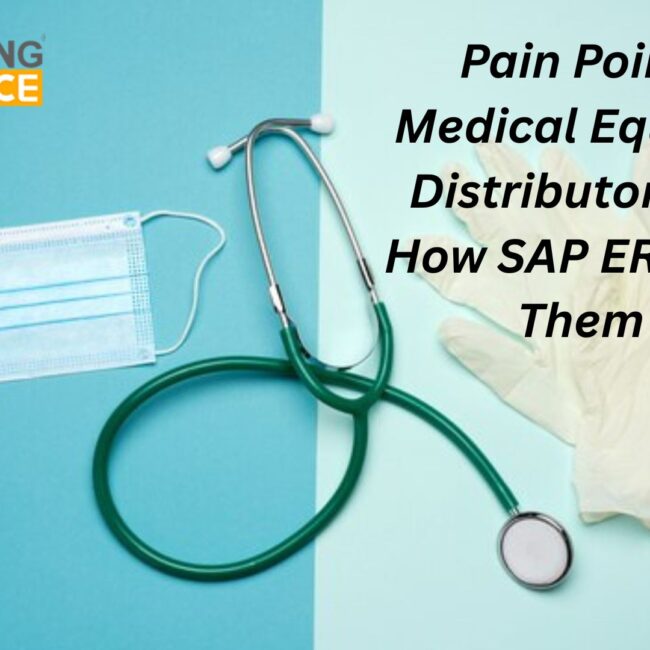
Can Odoo Stitch the Gaps in Your Textile Tale?

Reinventing Textile Operations with Odoo ERP: From Thread to Triumph
The textile industry is a tapestry woven with complexity. From sourcing raw materials and managing diverse machinery to meeting fast-changing fashion trends and fulfilling bulk orders, textile businesses must handle numerous threads at once. Traditional methods or disconnected software tools are no longer sufficient to meet the modern-day demands of agility, transparency, and speed.
That’s where Odoo ERP steps in. Designed for real-time coordination and total visibility, Odoo has quickly emerged as the ERP of choice for the textile industry. Whether you run a spinning mill, garment unit, dyeing house, or a composite plant, Odoo ERP can stitch together every function with precision and power.
Why the Textile Industry Needs a Digital Transformation
The textile sector is under constant pressure to deliver high-quality products on tight deadlines. Disruptions in supply chains, shifting demand, and increasing global competition make it essential to eliminate inefficiencies.
Manual systems or siloed tools slow down decisions and increase risks. Odoo, a flexible and modular ERP, provides an integrated ecosystem that unifies your business. It allows textile firms to digitize procurement, track production, automate sales, and maintain quality—all in one place.
How Odoo ERP Closes the Gaps in Your Textile Business
1. Streamlined Inventory and Material Management
In the textile industry, managing yarn, fabric, trims, and chemicals is a daily challenge. With Odoo ERP, you gain real-time visibility into stock levels, material movements, and warehouse operations. Lot and serial tracking help ensure accuracy and accountability.
2. Smart Procurement and Vendor Handling
Textile businesses often deal with dozens of suppliers for varied raw materials. Odoo automates RFQs, compares vendor pricing, and tracks lead times—making procurement smarter and more transparent.
3. Production Planning Made Seamless
From dyeing batches to stitching lines, production is the heart of textile operations. Odoo ERP allows you to define bills of materials (BoMs), monitor machine utilization, schedule tasks, and reduce idle time.
4. Sales and Order Management with Accuracy
With Odoo, sales orders are linked directly to inventory, production, and delivery. You can offer accurate lead times, manage discounts, and respond to customer needs without back-and-forth confusion.
5. Quality Control at Every Stage
In the textile industry, a small defect can cost you big. Odoo ERP supports quality checks at multiple levels — raw materials, in-process, and final inspection. Non-conformities can be logged and resolved through integrated workflows.
6. Integrated Accounting and Financial Reports
No more juggling between ERPs and accounting tools. Odoo includes robust financial management features, offering real-time cash flow reports, automated journal entries, and tax calculations tailored for textile needs.
7. Real-Time Dashboards for Smarter Decisions
With customizable dashboards, you can monitor production efficiency, stock movements, vendor performance, and customer orders in real time. Odoo ERP gives managers a birds-eye view for timely and data-backed decisions.
Benefits of Odoo ERP in the Textile Industry
- Enhanced operational efficiency through process automation
- Improved on-time delivery with production and inventory alignment
- Cost control by optimizing procurement and waste management
- Higher product quality with multi-stage inspections
- Better customer satisfaction with accurate and timely deliveries
Whether you’re a fabric manufacturer or an apparel exporter, Odoo ERP helps weave every department into a single, cohesive fabric of growth.
Real-World Impact: Textile Success Stories with Odoo
Textile firms adopting Odoo ERP have seen:
- 35% reduction in production delays
- 40% faster inventory turnover
- 50% drop in procurement errors
- Significant savings in time and cost from automation
The transition to Odoo doesn’t just upgrade systems—it transforms the business narrative.
FAQs
1. How does Odoo handle complex production stages in textile manufacturing?
Odoo supports multi-level BoMs, routing, and work centers to manage complex textile production workflows.
2. Can Odoo manage color and size variants in textile SKUs?
Yes, Odoo allows product variants, ideal for handling various sizes, colors, and textures in textile products.
3. Is Odoo suitable for small textile businesses?
Absolutely. Odoo’s modular structure lets small firms start with core apps and scale as they grow.
4. How does Odoo help in managing textile exports and documentation?
Odoo generates export invoices, packing lists, and handles multiple currencies and taxes to simplify global trade.
5. Can Odoo be customized for seasonal planning in textile sales?
Yes, Odoo allows seasonal sales tracking, demand forecasting, and tailored promotional campaigns.
6. Does Odoo offer real-time alerts for machine breakdowns in textile units?
Yes, with IoT integration or manual logging, Odoo can generate real-time alerts and maintenance requests.
7. How does Odoo ensure textile quality control across stages?
Quality checkpoints can be defined at raw material, WIP, and finished goods levels, with non-conformance logs and resolution workflows.
8. Is it possible to link textile e-commerce platforms with Odoo?
Yes. Odoo integrates easily with platforms like Shopify, WooCommerce, and custom online stores.
9. How secure is Odoo for handling sensitive textile business data?
Odoo uses role-based access, SSL encryption, and regular backups to protect your data.
10. How long does it take to implement Odoo ERP in a textile company?
Implementation time varies by scope but typically ranges from 6 to 16 weeks for textile operations.





